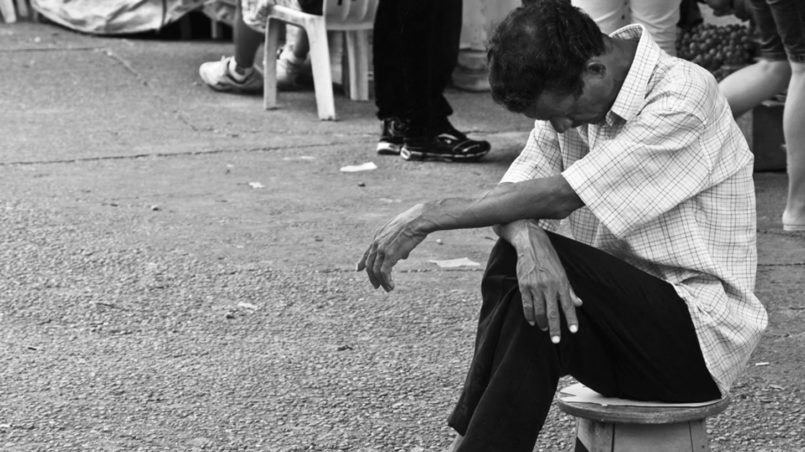Men as Victims of Patriarchal Culture

It is natural and even to a certain extent justified, to view existing gender relations as oppressive and a product of a patriarchal social order which insists on the suppression of women by men in whatsoever ways possible. Most of the crimes committed against women in almost all societies are gender-based.
From sexual violence to domestic violence against women, the crimes committed against women are a manifestation of complicity between socio-cultural norms and patriarchy. Thus, as a feminist, the tendency to equate violence with men becomes irresistible at times. And as a result, every situation gets seen and analysed through a conservative lens that considers men as the oppressor and never the oppressed. In doing so, an important realm in gender becomes completely obscured and ignored.
Until some time ago, I could hardly consider that men can also be victims of patriarchy and repressive gender norms. It was unthinkable for me and might still be the case for many men and women. The gender discourse has invariably focused on women’s issues and has paid almost no attention to issues of masculinity and experiences of men as gender categories. Many amongst us might still argue that men have, throughout history, occupied the position of oppressor while women have been oppressed, and thus women rather than men need attention in discourses of gender. Such arguments are not unwarranted but are replete with loopholes.
With increasing research on studies of masculinity, it has become clear that gender identities are not fixed in body or personality traits. Masculinity or femininity has to be understood as a set of practices through which men and women occupy a certain place in gender relations. Or in simple words, masculinity and femininity are socially constructed, and each culture sets particular standards for men and women. These standards are internalised by men and women in the particular culture.
If the standards set for women are oppressive and perpetuate inequality and injustice, then I believe it would be difficult to claim that standards set for men are particularly redemptive or fulfilling. There is no doubt that the gender norms or standards set for men in any culture are more favorable than the standards set for women in any culture. However, it would be naïve to believe that men do not have to struggle to match and adhere to such standards of masculinity in their culture. And many times, such standards of masculinity become oppressive and a source of exploitation for many men. This concern has been raised in LGBT struggles, as homosexuality often gets stigmatised because of our culture’s insistence on a singular form of masculinity, i.e. heterosexual masculinity.
Such phenomena can be explained through the concept of hegemonic masculinity. Over time, the idea of the plurality of masculinity became established and it helped to understand the relations amongst different groups of men displaying different kinds of masculinities. Such an analysis of oppression of men by men became important in gay liberation movements. And the development of such ideas of hierarchy amongst masculinities led to the development of the idea of hegemonic masculinity. Such hierarchisation of masculinities also has to be framed along lines of race, class, and ethnicity.
In fact, hegemonic masculinity embodies the most dominant and honorable way of being a man and ascendency to hegemonic status is usually achieved through cultural consent. In hegemonising one form of masculinity, other forms of masculinity are usually marginalised or feminised. This is very much evident in the way heterosexuality is hegemonised and homosexuality is feminised in most societies. In fact, in patriarchal ideology, homosexuals are denied hegemonic positions in the hierarchy of masculinities.
From one perspective, men seem to be advantaged by the process which ascribes traits like bravery, valor, strength, etc. as an association of masculinity as such traits provide men with a higher position in the gender hierarchy and thus access to power. However, from another perspective, the association of masculinity with such traits also becomes a source of pressure for men to comply with such set standards to be considered masculine.
The practices of associating men who fail to emulate such traits as feminine have repercussions for both men and women. The feminisation of alternative masculinity denigrates women as inferior while, on the other hand, it leads to men going to extremes to prove their masculinity according to set standards. Rigid gender identity thus can become suffocating and oppressive for both men and women.
Similarly, in everyday life, we can observe how the need to exhibit a particular form of masculinity can become constricting for men in multiple ways. However, such experiences of men are pushed under the carpet to keep intact patriarchal notions of masculinity. Any gender analysis which ignores these aspects of gender norms and gender relations would remain skewed in nature.
Women remain oppressed because of the way social, political and economic institutions in our society are structured. However, the belief that men can never occupy the place of the victim along with women in a patriarchal society is highly distorted.
Credits
| Image | Title | Author | License |
|---|---|---|---|
 |
8192000981_dbc7abf69e_o | Simon Powell | CC BY 2.0 |
